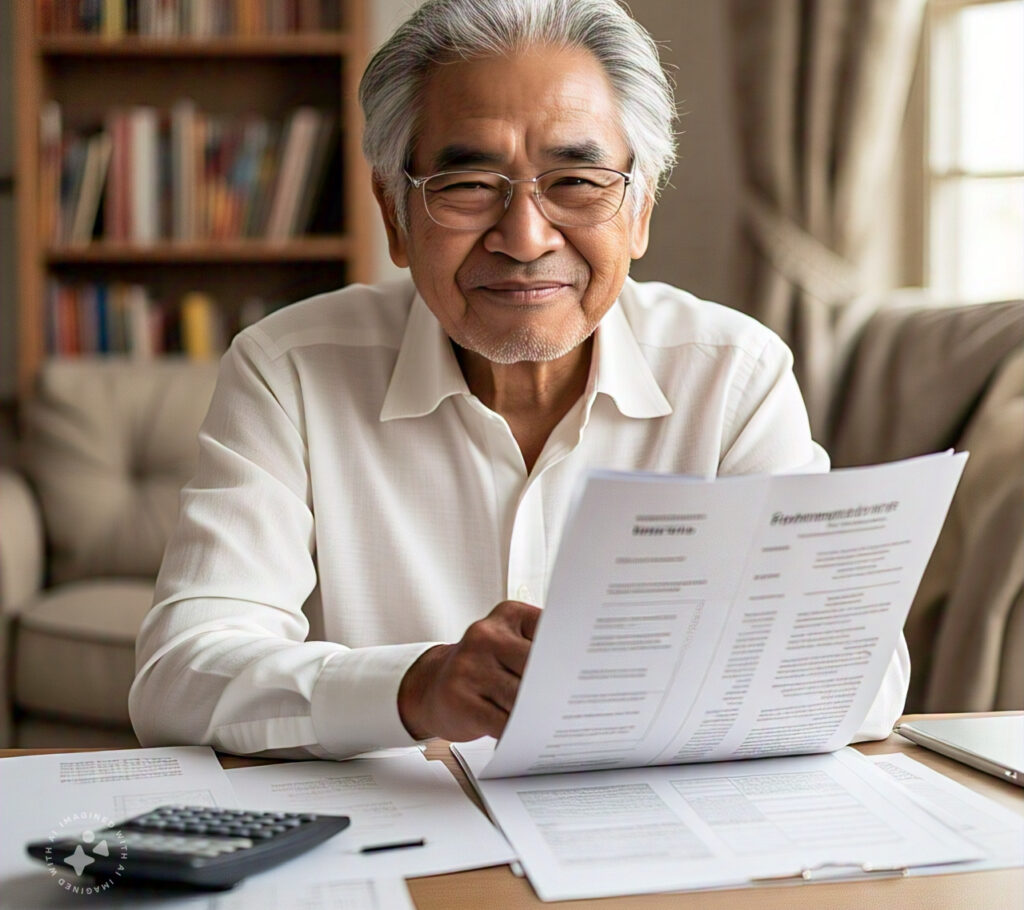You can’t simply leave your financial security up to chance. Throughout most of your life, your goal was to earn enough money to support your family and put a little aside for retirement. But once you have retired, you must have enough savings and pensions to support yourself when you no longer have a monthly salary to depend on to cover your living expenses.
Investing a portion of your savings is one way to make your money work without breaking your back. When you’re investing during your retirement years, you need to be more careful and conservative because you no longer have time to recover from significant losses. Here are some tips you should remember during retirement.
Pay Off All “Bad Debt”
First off, you need to settle your pending “bad debts” before you take on new investments. According to experts “Bad debt” is any debt that takes money out of your pocket. This includes credit cards, car payments, and even your mortgage. Good debt, on the other hand, is any “self-liquidating” debt such as mortgages on rental properties, etc.
Since you will no longer have a regular income you want to be debt-free before you retire, so pay off your high-interest credit card, mortgage, and any other informal debt agreements i.e. the ones you have with friends or family members. Crossing debts off of your monthly expenses checklist will help decrease your monthly costs and increase the amount you can invest. It’s like an “out of sight, out of mind” thing. When you clear your debt, you can move onto focusing your money on good investments. And without debt, your monthly expenses will be much lower.
Keep an Emergency Fund
Your savings and investments should be separate from your emergency fund. If you managed to build this fund when you were younger, good for you.
Ideally, during retirement, you’ll want to save up a safety net that covers two years of living expenses in “cash” i.e. liquid investments such as a savings account, Certificate of Deposit (CD), money market account, etc. This is money you can access easily and quickly in case of an emergency situation. This fund should take care of you when you fall slightly short of your income generation, and prevent you from taking on new debt or selling some of your investments at a loss.
Review Your Portfolio
It’s worth emphasizing that it’s going to be difficult to earn back your capital without a steady monthly income. So, you’ll want to be careful and wise when it comes to investing during your retirement years.
With this, you should assess your existing portfolio and take a look at how balanced your investments at your current stage in life are, and whether you’re bound to more risks than gains. This should help you formulate a sensible and relatively safe approach to investing after you retire.
Reduce Your Risk Appetite
If you’re used to putting your eggs in high-risk investments, it might be a bit hard to tone your risk level down come retirement. You might be tempted to take on too much risk to achieve potentially higher returns but you need to avoid this temptation at this stage of your life. Remember that at this point, you don’t have time to make up for major losses. That’s why it’s best to maintain a diversified portfolio, which is vital to maximizing your returns while managing risk properly to avert losses.
Consider Stable Funds
When you’re younger, you can spend your prime years investing in more risky investments. Investment in your 50’s or older means you have to be more risk-averse. You need to be more conservative since you’re getting closer to actually needing and cashing out your retirement savings.
A few years before and during your retirement, it would be wise to look at other types of investments that are safe, like low-earning yet more stable funds such as bonds and money market funds.
By the time you’re late 60’s or early 70’s, you’ll want to switch your focus from growth to income.
Classify Your Retirement into Five-Year Segments
One of the biggest challenges you’ll face at this point of your life is that there’s no one-size-fits-all investment strategy that can cover your needs for a 30-year retirement.
Your needs and investment risk differ in each five-year segment, such as 60 to 65, 65 to 70, and 70 to 75 etc. For instance, you might want to consider putting your money into stocks that provide more dividend income when you’re in your 70’s.
Historically the rule of thumb was that you subtract your age from 100 – and keep that percentage of your portfolio in stocks. So, when you are 50, you would keep 50% of your portfolio in stocks and 50% in fixed assets like bonds and money market funds. And once you are 70, you would only keep 30% of your portfolio in stocks.
However, as life expectancies have increased, many financial planners are now recommending that the rule should be extended to 110 or 120 minus your age. That’s because if you might need to make your money last longer, so you’ll need the extra growth that stocks can provide.
With fewer lifetime guaranteed pension options available as people and companies switch to IRAs or 401k programs (which can be outlived), you might consider an annuity that will provide a guaranteed minimum income that you can’t outlive. Unfortunately, Annuity contracts are often complex and sometimes written more to the benefit of the company than to the customer, so you should read up on them before choosing one.
https://youtu.be/58fvD6bFQIQ
Avoid Mismanagement and Beware of Scams
Your investments must change and fit your needs as your situation does, especially during retirement years. The asset allocation when you were in your thirties is miles different from those in their 50s or 70s. Make sure to regularly review your portfolio and make changes as you see fit.
Your retirement years are when you’ll be most vulnerable to investment scams—one of the fastest and surefire ways to lose your savings. To avoid such, remember that if an investment looks too good to be true, it almost certainly is. Don’t invest over the phone or when you’re under time pressure.
Summing it up
Investing after retirement is no easy task, but having a solid retirement fund and investments in these years is a significant financial milestone. You should take a lot of considerations and adjustments to ensure you’re putting your money in baskets that can help you enjoy a secure and comfortable life.
Make sure to consult with an investment expert or financial advisor to help you work through your retirement years to learn how and where to start. Best of luck!
About the Author:
Kim Tan is a financial advisor who loves to freelance writing about money. She’s been an advisor for over five years. Kim is very passionate about helping people in managing their finances and see them succeed in it.
You might also like:
- The Wealthy Buy Assets, the Poor Buy Liabilities, and the Middle-Class Buy Liabilities Believing They Are Assets
- Empty Nest Finances— Downsizing Tips to Increase Your Retirement Budget
- Retiring to the Mountains: Enjoying Your Retirement
- Going Out in Style: How to Retire in the Lap of Luxury
- Reduce Debt or Save– What Should You Prioritize?
- 4 Tips for Staying on Top of Your Debt




